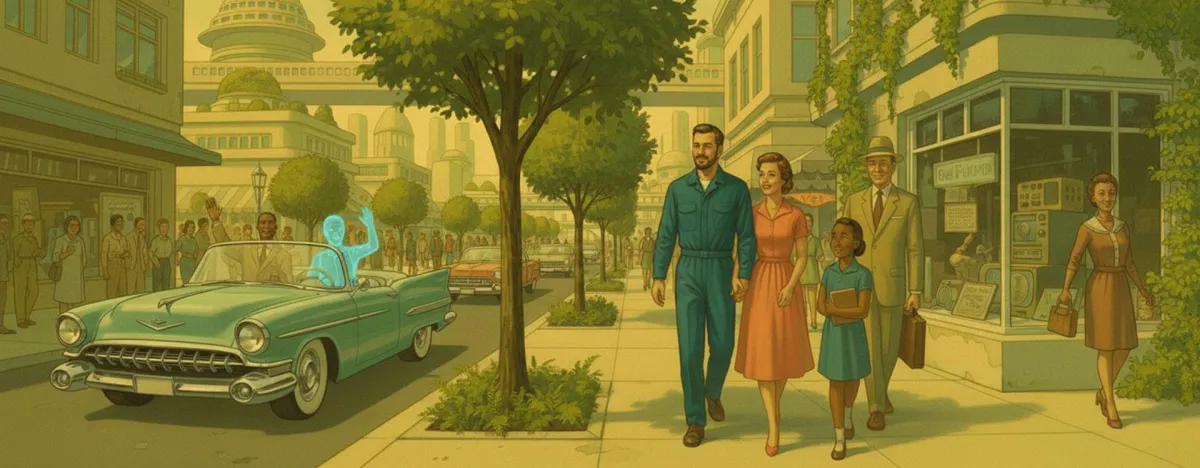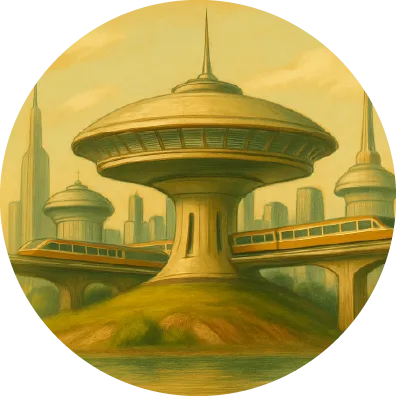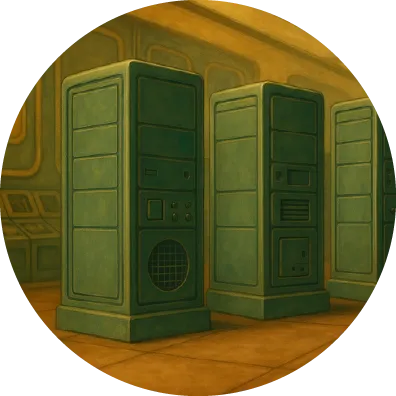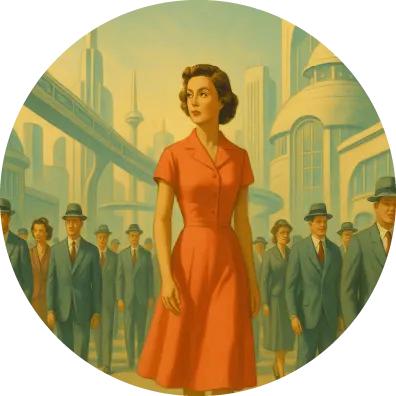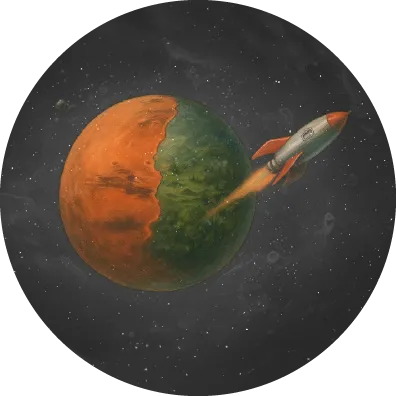Editorial Vision
Speculative Future Magazine is an independent online publication, exploring how technology, governance, and design can help society move toward a more hopeful, decentralised world.
It’s written for thinkers, builders, and policymakers who want to look beyond headlines and into systems - asking how we can design economies, institutions, and communities that work for people.
Each essay is a synthesis of research, psychology, and practice: not predictions, but frameworks for progress.
We don’t pretend to have the answers. The future is far too messy for that. What we share are ideas — essays, reflections, and opinion pieces that look for better ways forward. Not predictions, just perspective. Not hype, but grounded thinking based on what’s already changing around us.
By “magazine,” we don’t mean glossy celebrity covers or breaking newsrooms. Our inspiration is closer to the mid-century journals that treated ideas as something public — places where design, culture, and common sense met. We’re bringing that spirit back: slower, more reflective, and built to last.
The visual aesthetic follows the same logic. The retro-futurist artwork nods to the 1950s and ’60s — not out of nostalgia, but as a reminder that people once imagined the future with genuine optimism. There’s no reason we can’t do that again.
We’re transparent about the lenses that shape our work. We don’t claim neutrality — no publication truly can. Ours leans toward agency, regeneration, and contribution over control. We stay away from both hype and cynicism. We prefer “what if?” to “must do.” Technology should amplify freedom, and the commons — digital or physical — must remain shared.
The ideas here are practical as much as hopeful. They explore how work, business, and cities could be redesigned to share value more fairly and give people a stronger voice in the systems they live in.
For now, Speculative Future lives online. Soon there’ll be print editions, short documentaries, and The Idea Seeder — an open-source forum for people who want to take these ideas further.
Our vision is not final. It’s evolving, like the future itself. But if there’s a thread that ties it together, it is this:
A decentralised world, reimagined — one idea at a time.
Non-Political Disclaimer
Speculative Future Magazine does not subscribe to any political party or fixed ideology.
Across these works you may encounter ideas traditionally labelled Liberal, Libertarian, Free-Market Capitalist, Socialist, Communist, Centrist, or Third Way. None of these labels fully define the worldview presented here. Instead, we borrow selectively from many traditions, re-contextualised into a broader, more cohesive societal model.
The closest fit might be Contributionism, though our use of the term departs from both its academic misapplications and its ideological co-options. Elements of eco-libertarianism inform our work, but with safeguards and structures that diverge from orthodox libertarian thought.
Above all, these ideas are not doctrine, but design: frameworks shaped by first principles, systemic integrity, and human flourishing.
They’re not radical ideas — just common sense, applied with care.
Authorship

Speculative Future Magazine is written and edited from a single point of view — an independent voice exploring how society, technology, and culture might evolve toward a fairer, freer, more human world.
For now, every essay, framework, and visual published here originates from one author — but the intention is collective. In time, Speculative Future may welcome contributors whose values align with its editorial lens: decentralisation, contribution, and hopeful speculation.
The author has chosen to remain unnamed — not out of secrecy, but to keep focus where it belongs: on the ideas themselves. The vision matters more than the individual behind it.
Until then, consider this magazine both a personal exploration and a public invitation: an open framework for anyone who wants to imagine — and one day help build — brighter tomorrows.
© 2025 Speculative Future Magazine

